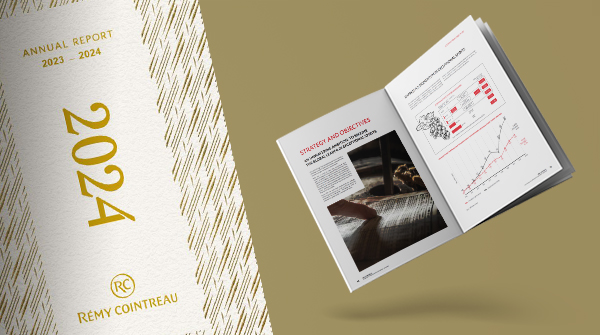Our history
Rémy Cointreau is a family-owned French group whose origins go back to 1724.

FULL YEAR RESULTS 2024-25 – June 4 at 9 a.m.
Webcast link
Click here to register
Ask your questions during Q&A:
France: +33 (0) 1 70 37 71 66
International Access: +44 (0) 33 0551 0200
United States: +1 786 697 3501
Code: “Remy Cointreau”

Rémy Cointreau Annual Report 2023/2024
Discover our digital and accessible annual report
The Rémy Cointreau Group brings together a range of exceptional spirits that draw their strength from their authenticity and originality.
Our companies have the good fortune to be heirs to these terroirs and this expertise that has been handed down from generation to generation.
Sales
984.6 M
Recurring Operating Profit
217 M
Recurring operating margin
22 %
Rémy Cointreau is a family-owned French group whose origins go back to 1724.
It is Rémy Cointreau's ambition to become the world leader in exceptional spirits.
Here you will find our annual reports, reference documents and presentations.
As a family-owned group, Rémy Cointreau recruits employees who want to make a long-term commitment in order to ensure the sustainable development of its brands.
To visit this site, you must be of legal drinking age within your country of residence.
Note filtre age